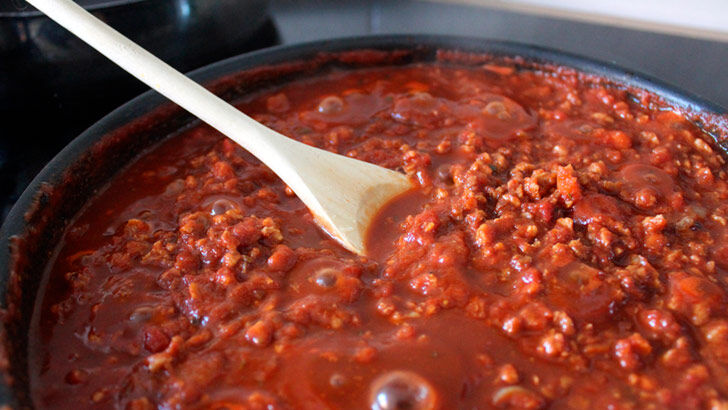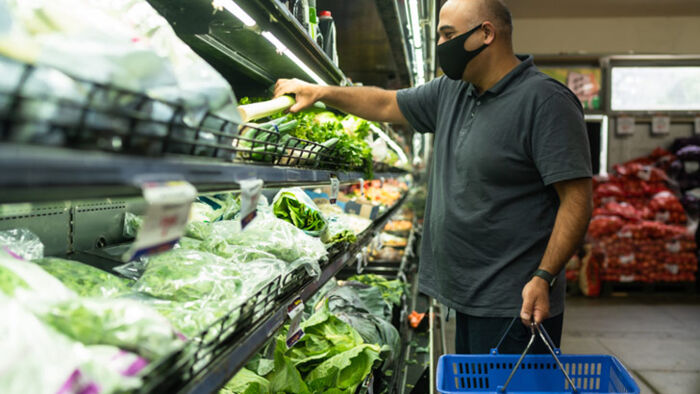Seven ways to save money on groceries
By Serina Bird
If you've thought your visits to the supermarket were getting more expensive, you're not imagining things.
According to March Australian Bureau of Statistics inflation data, food inflation has increased 4.3% compared with a year ago. Of this, fresh vegetables have increased by 6.7% and meat by 6.2%.
Some areas have been affected more than others, with residents in Southeast Queensland and Northern New South Wales still recovering from devastating flooding and experiencing a high spike in the cost of fresh fruit and vegetables. But the influence of COVID, natural disasters, high petrol prices and global supply chain problems are having an inescapable impact everywhere.
There is no magic wand to make grocery prices come down. Some of the factors are short-term, but many are long-term. But I do have some tips that will help lessen the pain.
1. Frozen is okay
It is okay to use frozen vegetables, berries, and fruit. The items are usually snap-frozen on harvest and sometimes can be more nutritious than eating fruit and veg that have been languishing in your fridge.
Not only are they cheaper, but they reduce food waste as well. I like to buy Australian grown where possible, and I always have frozen peas and broccoli on hand to ensure we have some greens available.
2. Eat seasonally
Many people have used the high price of iceberg lettuce to symbolise all that is wrong with vegetable prices. But did you know that lettuces are best in spring and early summer?
Look instead for autumn vegetables such as cabbage, broccoli and early cauliflower - although some of these have also had harvests impacted by flooding. I love a lovely winter salad made with finely shredded cabbage. Now is also a great time for buying pumpkins and silverbeet.
3. Do the list
Do you have a shopping list?
You might be surprised to find that many people don't. So get your family to write items down on the list whenever you are running low to ensure you can buy them when you are next at the shops. (In our household, sometimes some wishful thinking items make it on there as well - just because it's on the list doesn't mean we buy it).
Having a list helps you focus as you navigate the temptations of the supermarket and will potentially help reduce unplanned trips to the supermarket.
4. Eat less red meat
Many of us regularly eat more red meat than recommended as part of our diet - often without realising it.
And it has become expensive. Beef stocks were depleted during the drought and have not yet been fully replenished. As a result, staples like beef mince are at an all-time high.
Avoid high prices by bulking out with vegetables and legumes, eating more (or all) vegetarian meals, or switching to other proteins such as chicken and pork. While not everyone eats pork, it is cheap compared with beef at the moment. And eating less red meat could be good for you: the Heart Foundation recommends no more than 350g of beef each week and 100g per serve.

5. Say yes to the catalogue
Ever stop to browse a supermarket catalogue? Make them essential reading (ideally online to save paper and the environment).
Most supermarket chains regularly sell items they lose money on, known as loss leaders, to entice people into their stores. So scour catalogues for details of specials on things such as instant coffee (which has gone up 47% compared with the same time last year).
6. Grow your own
Autumn is an excellent time for sowing winter crops. Don't have a green thumb? Try something easy like herbs.
With people increasingly moving into apartments, it's not always possible to become entirely self-sufficient. But even a pot of herbs will save you big dollars over the long term.
7. Bulk shopping
It's not only grocery prices that have gone up: petrol is also high. Every trip in your car costs time and money. Plan your trips to the supermarket carefully to ensure you have enough supplies - something that people in remote and rural areas routinely do.
Depending on where you live, you can top up with smaller shops to markets, Asian or Middle Eastern grocery stores or smaller supermarkets.
We generally do a three-weekly cycle of one large shop followed by two smaller shops. Also, consider pairing up with a friend or family member to do bulk shops together, including wholesale fruit and vegetable markets and membership stores such as Costco.
High grocery prices are a fact of life - at least for now. If you are struggling to feed yourself or your family or know someone who is, make sure to reach out to charities such as OzHarvest or FoodBank for support.
Get stories like this in our newsletters.



